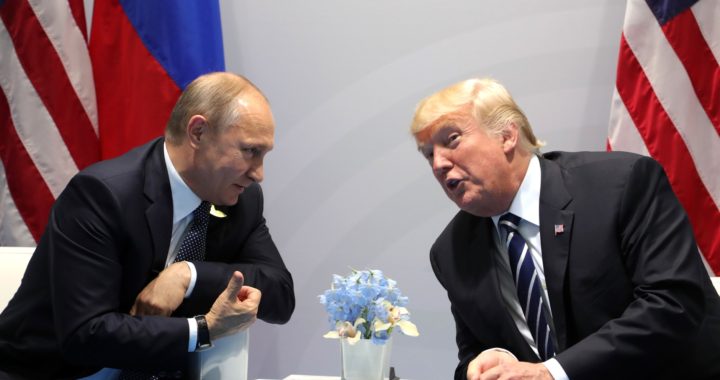On Wednesday, August 2, Congress flexed unified legislative muscle for the first time in a long time by implementing a series of fresh sanctions against three countries whose behavior is increasingly worrisome: Iran, North Korea, and Russia.
Iran and North Korea found themselves in Congress’ crosshairs because of the recent strides both nations have made in their ballistic missile programs. In the case of Russia — a nation with a plentiful supply readily working ballistic missiles — Congress invoked not only the growing evidence of Russian collusion in the 2016 Presidential election, but Vladimir Putin’s support for the controversial regime of Syrian president Bashar al-Assad.
As this new round of financial restrictions goes into effect, it’s the United States’ focus on Russia that’s drawn most of the international attention. So why did Congress enact these sanctions? What’s the potential fallout? And how will the whole thing effect the international oil and gas market?
The United States Faced Immediate Backlash
On Capitol Hill, the Russian sanctions were a big hit. The House passed the measure 419-3, and the Senate passed the resolution 98-2 even as the President called the bill “seriously flawed.” Similar sanctions have been adopted by the EU, but the reaction from the international community has been — like the President’s — somewhat mixed.
In an attempt to weaken Russia’s most powerful economic sector, the new legislation specifically prohibits companies from doing business with Russian-owned oil and gas firms. According to the German government, that stipulation could harm the German economy as those German businesses with a stake in pipelines or off-shore oil rigs could see their investment evaporate under this new round of restrictions.
That economic uncertainty in Russia’s most important industry could dry up investments and push them toward another developing energy powerhouse: the United States.
United States Oil and Gas Is Poised for a Win
In an America where Congress’ approval rating is hovering at a dismal 20 percent, the legislative body needed to prove that it was out to get something done.
Though some would suggest that sanctions against Russia haven’t worked in the past, this time around there are a few new factors that might help the effectiveness of this new round of regulations.
First, several of these new sanctions are aimed specifically at the oil and gas industry. Investments in Russian-based projects have been severely limited and any company looking to get into bed with Russia could be facing serious fines.
Second, Russia’s economy is a fragile thing. The nation is still emerging from an economic recession that began in 2014 when the international price of oil began to fall. Now that oil is edging back up, so is Russia’s economy. A deficit of investment funds could stall the country’s resurgence in a big way.
Perhaps that’s why Vladimir Putin has been so outspoken in his dismissal of the new sanctions — he’s gone so far as to claim that Donald Trump’s inability to do something to prevent the sanctions was a display of the President’s “impotence”. Renewed skepticism aimed at Russia’s oil and gas industry could topple the nation’s fragile economy. Time will tell, but it would seem that the only one to get truly hurt by this new round of sanctions will be Russia’s millionaires.
Meanwhile, the United States’ flourishing oil and gas industry is suddenly looking very attractive to potential investors.

